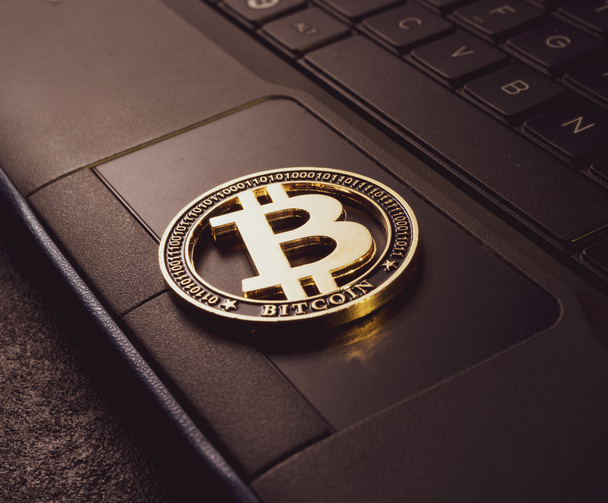The world of cryptocurrency has seen a surge in accessibility, with various platforms offering Bitcoin investments. While many exchanges provide convenient entry points, they often require Know Your Customer (KYC) verification, compromising privacy.
This guide explores alternative methods for acquiring Bitcoin anonymously. We’ll delve into the realm of anonymous Bitcoin exchanges and peer-to-peer platforms, empowering you to navigate the cryptocurrency landscape while preserving your privacy.

Bitcoin ATMs: A Discreet Gateway to Cryptocurrency
Bitcoin ATMs offer a convenient and anonymous method for acquiring Bitcoin. Similar to traditional ATMs, these machines facilitate the exchange of fiat currency for Bitcoin. To purchase Bitcoin using a Bitcoin ATM, you’ll need cash and a personal Bitcoin wallet.
Many Bitcoin ATMs prioritize privacy by allowing transactions up to a certain limit without requiring identification. While the exact limit may vary, it’s often around $500. Some machines may implement SMS verification for added security, but personal information beyond this is generally not necessary.
By utilizing Bitcoin ATMs, you can discreetly add Bitcoin to your digital wallet, bypassing the traditional KYC requirements associated with many online exchanges.
Peer-to-Peer Trading: A Private Approach to Bitcoin Acquisition
Peer-to-peer Bitcoin exchanges, like Bisq, offer a decentralized platform for trading directly with other users. This method allows for anonymous transactions, especially when utilizing “cash in-person” as the payment method.
To engage in peer-to-peer trading on Bisq:
1. Download and Install: Begin by downloading and installing the Bisq application on your computer.
2. Configure Payment Method: Set up your preferred USD payment method within the Bisq interface.
3. Accept an Offer: Browse available offers from sellers and select one that suits your needs.
4. Send Funds: Transfer the agreed-upon amount of USD to the seller’s bank account.
5. Confirm Payment: Indicate the payment completion within the Bisq platform.
6. Withdraw Bitcoin: Once the seller confirms receipt, withdraw your Bitcoin to an external wallet or retain it in your Bisq account.
Important Note: Before initiating transactions, you’ll need to deposit a security deposit of Bitcoin into your Bisq account. If you’re new to Bitcoin, consider purchasing a small amount from a friend or family member to establish your initial deposit.
Leveraging Prepaid Cards for Discreet Bitcoin Purchases
Prepaid debit cards offer another avenue for acquiring Bitcoin without revealing personal information. These cards function independently of traditional bank accounts, requiring users to preload them with funds before making transactions.
Several exchanges accept prepaid debit cards as a payment method, allowing for anonymous Bitcoin purchases up to certain limits. Changelly and Bisq are notable examples, enabling transactions without ID verification up to $10,000 and 0.1 BTC, respectively.
By utilizing prepaid debit cards, you can enhance your privacy when purchasing Bitcoin, as these cards minimize the connection between your identity and your cryptocurrency transactions.
Preserving Privacy in the Bitcoin Realm: A Comprehensive Guide
While we’ve explored methods for acquiring Bitcoin anonymously, it’s essential to implement additional measures to safeguard your privacy throughout your cryptocurrency journey. Here are key strategies:
1. Utilize Multiple Wallets: Employing distinct wallets for various purposes helps obfuscate your transaction history. This reduces the likelihood of third parties linking different transactions to a single individual.
2. Protect Your Bitcoin Address: Avoid sharing your Bitcoin address publicly. Any transactions associated with that address become traceable. Additionally, refrain from discussing your Bitcoin activities on public platforms.
3. Employ a VPN: A Virtual Private Network (VPN) masks your IP address, preventing exchanges or other services from logging your location. This adds an extra layer of privacy to your Bitcoin transactions.
4. Explore CoinJoin: CoinJoin, akin to a financial mixer, combines your Bitcoin transactions with those of others, making it challenging to trace individual funds. However, it’s crucial to note that CoinJoin services might face regulatory scrutiny in certain jurisdictions.

Source: create.vista.com
Legal Considerations:
While there aren’t specific U.S. laws directly governing Bitcoin privacy, existing regulations like the Bank Secrecy Act and Know Your Customer (KYC) requirements can impact your anonymity. These regulations often necessitate businesses to collect and report user information, potentially compromising privacy.
Data protection laws, such as the General Data Protection Regulation (GDPR) in the European Union, further influence how cryptocurrency businesses handle user data. The legality of blockchain analysis tools, used for de-anonymizing transactions, remains a subject of debate.
The evolving regulatory landscape, coupled with the decentralized nature of Bitcoin, presents a complex interplay between privacy and compliance. Navigating this landscape requires careful consideration of your specific needs and the legal implications associated with your chosen privacy measures.
Investor Takeaway: Balancing Privacy and Investment Goals
For those prioritizing financial privacy, the methods outlined in this guide offer discreet avenues for acquiring Bitcoin. By utilizing anonymous exchanges, peer-to-peer platforms, or prepaid cards, you can minimize the disclosure of personal information. Implementing additional measures like using a VPN and generating new Bitcoin addresses further enhances your privacy.
However, for substantial Bitcoin investments, opting for a regulated exchange, even with its KYC requirements, might be a prudent choice. Regulated exchanges often provide greater security, liquidity, and investor protection, which can be crucial for significant financial commitments.
Ultimately, the decision between privacy and other investment considerations depends on your individual priorities. Carefully evaluate your needs and risk tolerance before selecting the most suitable approach for your Bitcoin acquisition strategy.
Learn from market wizards: Books to take your trading to the next level

 Hot Features
Hot Features












